residential environment
clean stove / PV power systems /
mangrove forest restoration

Korea Green Foundation is trying to create a sustainable village model with Asian neighbors such as Bangladesh, Myanmar, Cambodia, Laos, Mongolia, Nepal,
etc. Since 2006, KGF has created wells and provided rainwater storage facilities for residents suffering from drinking water shortage, and since 2012, it has
distributed solar lamp and started to install power station for the villages’ energy independence.
And since 2015, we've tried an integrated approach through the Eco Village model to a number of problems in these villages.
1) We solve the problem of limited energy and water resources in the village with no national power grid and water supply,
2) By diversifying the income sources of the residents of the agrarian society, sustainable jobs are provided, and at the same time, the soil is given plenty of
time to recover its capacity,
3) By organizing the Sustainable Development Committee and providing education to respond to climate change, residents are capable of actively coping with
the increasingly frequent natural disasters.
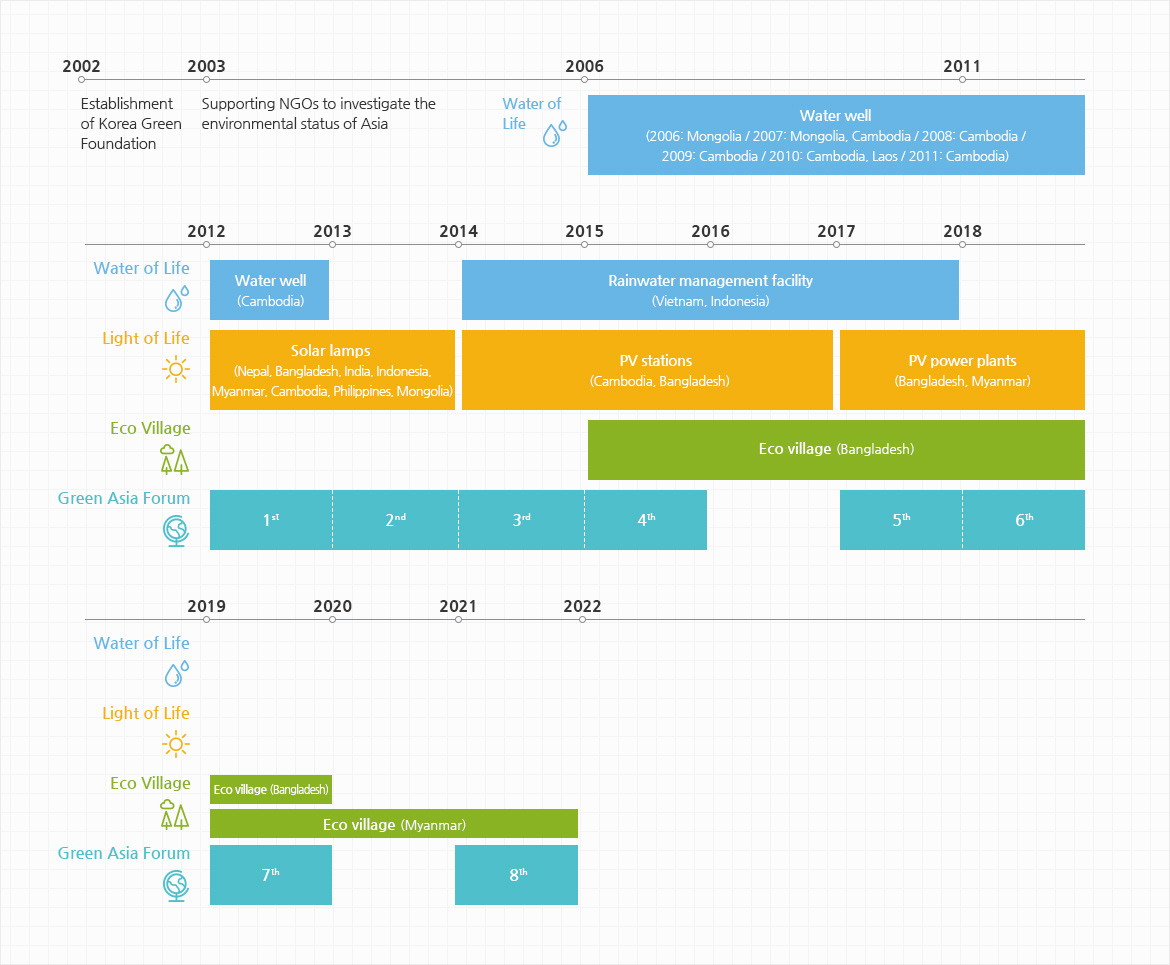
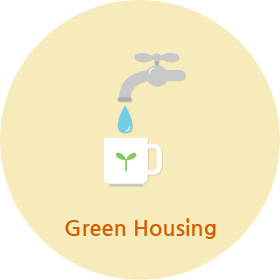
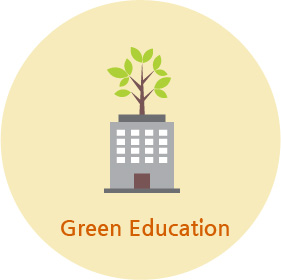
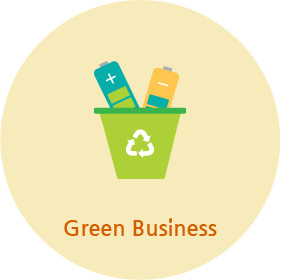

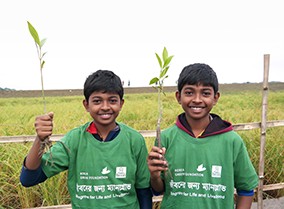
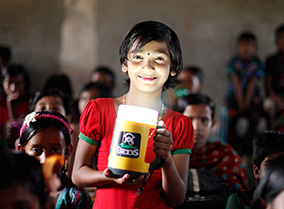
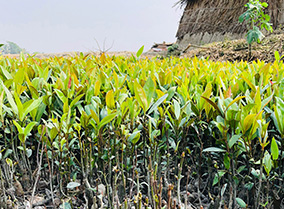
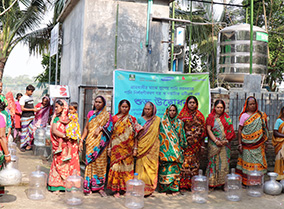
Korea Green Foundation established the first eco-village in Bangladesh's Banishanta Union from 2015 to 2020. The target village is located in Sundarbans, the world's largest habitat
for mangroves, with three to five times higher carbon sequestration capacity compared to the general forest.
However, the oil spill in 2014 contaminated 50-70 kilometers of water from the accident site. Mangrove forests were destroyed, and the residents, animals and plants including the
endangered species, lost their livelihood and habitats.
At the same time as restoring mangrove forests, KGF launched an eco-village project that attempts to integrate green housing, green business, and green education to help residents
of the Banishanta Union achieve sustainable development of the village.













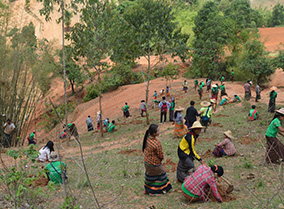
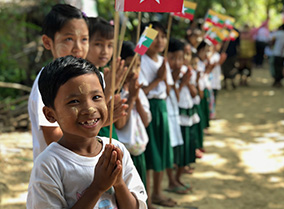
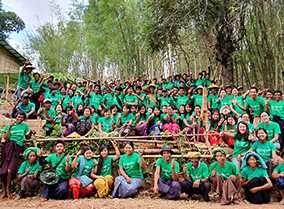
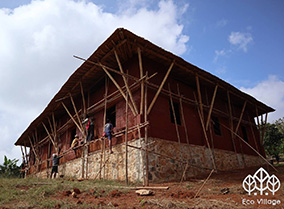
Kyaung Nget, Ye Chankhong, and Wachi Maung, where ethnic minorities live in Shan State, Myanmar, are peaceful villages based on the agriculture and abundant resources of Lake
Inle. However, as Myanmar's dry season has been earlier than ever and the rainy season has been shorter, residents are struggling with water shortages. In addition, due to
indiscriminate cultivation of ginger farming, soil nutrient has been depleted and flood from heavy rain has been getting severe.
KGF started building the second eco-village in 2019. Six solar stations will be built in three villages where the national grid is not yet available, and rainwater catchment facilities will
provide sufficient water during the dry season.
In addition, medical supplies were provided to Township Hospitals, which suffered from insufficient supplies, to cope with the spread of COVID-19 in 2020. In addition to prevention
of the spread of infections, we will support the residents to make a living on their own even in unstable situations.











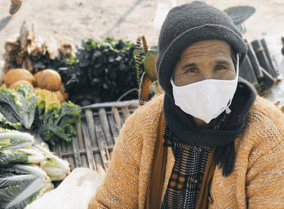
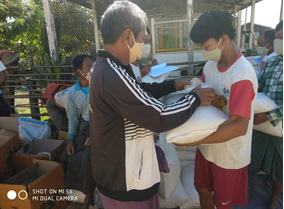
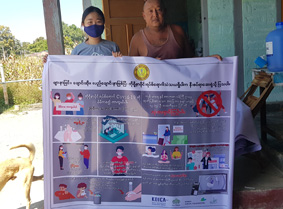
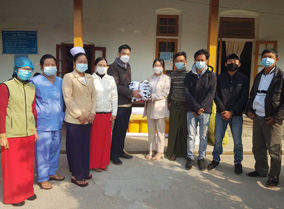
COVID-19 has done more damage to vulnerable people in developing countries. KGF aims to enhance the capability of 50 villages in Nyaungshwe Township, where Myanmar's
eco-village is located, to respond to COVID-19. All activities were conducted under the leadership of the town committee to ensure that the response system would continue.
KGF distributed fabric mask kits to aid residents who cannot afford to buy masks and to solve the pollution caused by disposable masks. The residents had to suffer from food
shortages as income declined and the price fluctuated. KGF distributed crop seeds and organic fertilizers along with emergency food to residents.
As residents use minority languages instead of Burmese, Myanmar's official language, they are significantly less likely to access COVID-19 information. KGF translated information
and news related to COVID-19 into minority languages and broadcasted regularly in the village.
In addition, washbasins and water soap have been installed throughout the multi-use facilities so that residents can wash their hands daily to prevent infectious diseases.




